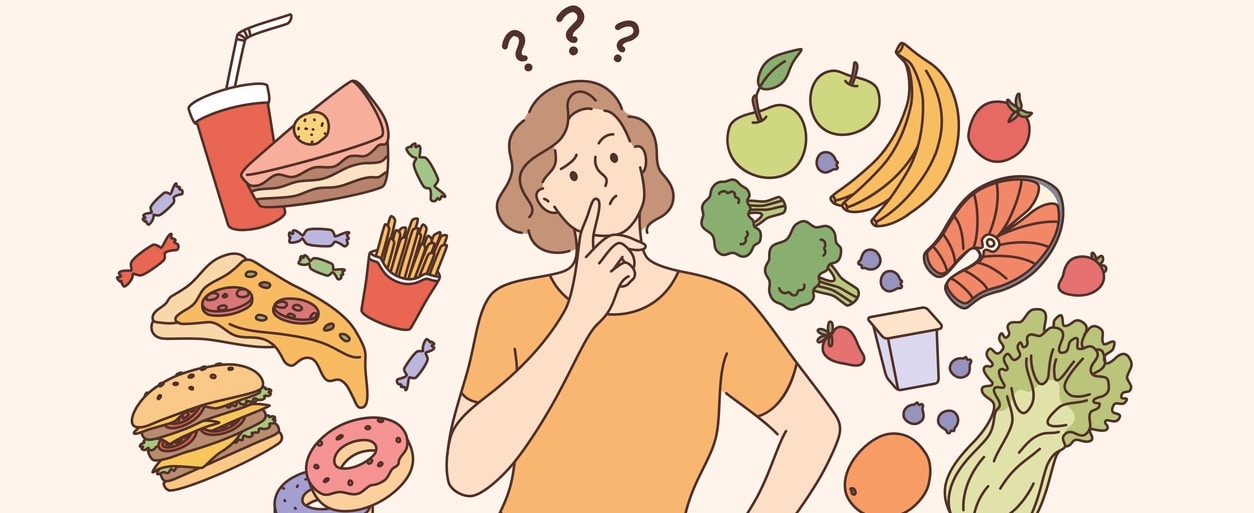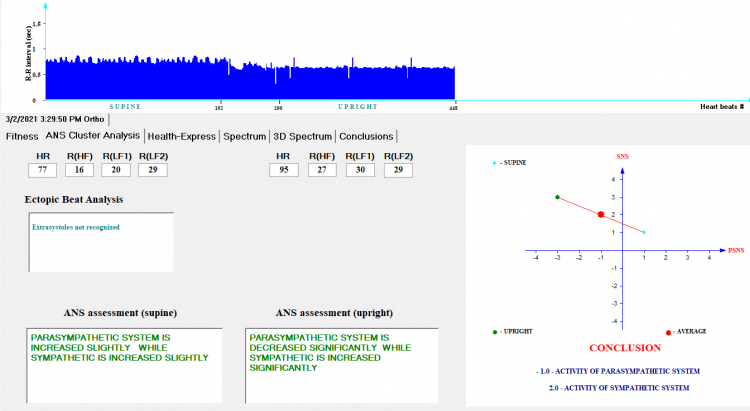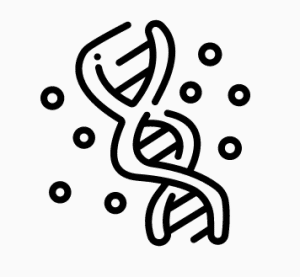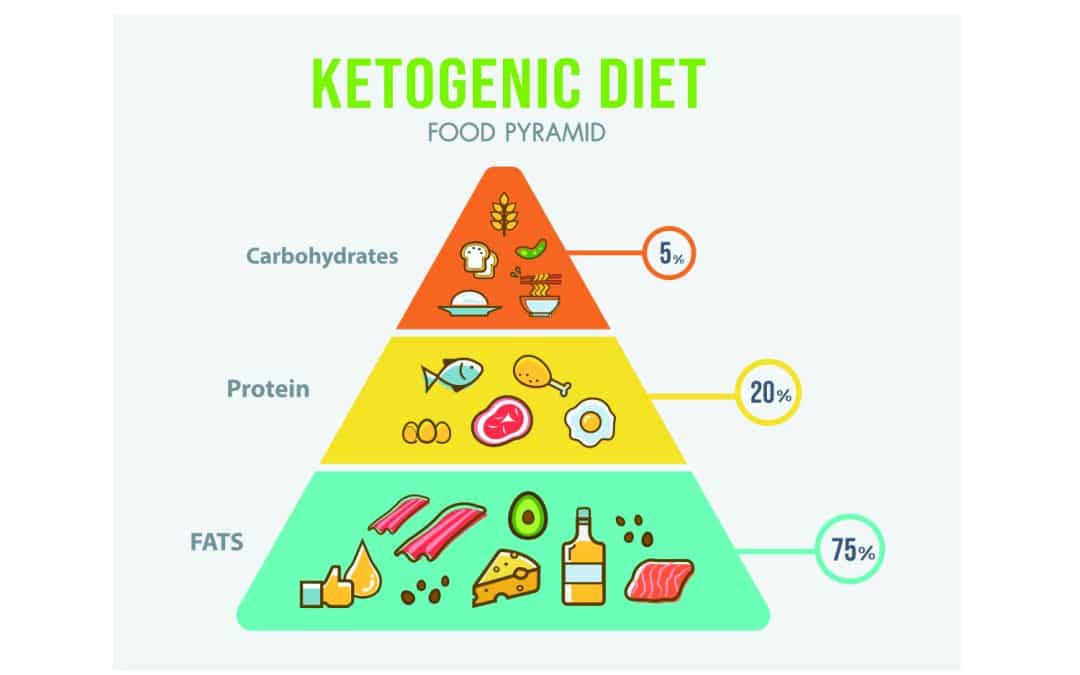What is a Keto Diet?
What is a Keto Diet?
In the world of weight-loss diets, high-protein and low-carb have ruled for a decade. South Beach, Paleo, and Atkins diets are often considered “ketogenic” or “keto” diets.
True keto diets differ from the most popular high-protein diets because a keto diet is based on fat instead of protein. Fat supplies up to 90% of the calories in a “true” keto diet.
How Does It Work?
A keto diet is designed to force your body into burning a fuel that the liver produces from stored fat instead of using the normal sugars it derives from carbs.
This fuel from your liver is called “ketone bodies.”
To force your body to use this fuel, you must eat fewer than 50 grams of carbs per DAY. (One slice of bread, for example, contains 15 grams of carbs). After a few days, your body may reach a state of “ketosis,” where it is creating and burning ketone bodies. However, too much protein can also interfere with the process (usually limited to 75 grams per day).
Keto Risks
Recent research suggests that specific genetic markers can make a keto diet unsafe. (Read THE KETO DIET CAN BE DANGEROUS IF YOU HAVE THIS GENE)
A typical person on a keto diet will eat 170 grams of fat, 50 grams of carbs, and 75 grams of protein. And yes, that is a LOT of fat! Your fruits are restricted to a few berries, and your vegetables are very limited.
This can lead to heart disease risks and nutritional deficiencies. Other potential problems are stress on your liver and kidneys, constipation, and brain fog from the low-carb diet.

Subscribe Now! Get More Health Info

The Upside to Keto Foods
I send many of my patients to a local keto bakery. This is not because I want them to go on a keto diet, but because I want them to stop eating sugar.
Keto cookies, cakes, and sweet rolls have almost NO sugar OR carbs! It’s like a miracle! Not everyone likes them, but most people can find some great substitutes to be able to eat a cookie when they want to without messing up their immune system. (See “Sugar and Your Immune System)


The Problem with Keto (And Other Weight-Loss Diets)
Everyone’s body is different. A diet that works for someone else may fail for you, or even damage your health.
Many patients who come to me for weight loss don’t need a diet. Their weight is coming from hormones, digestive problems, or allergies.
My Advice:
Stop trying to lose weight or improve your health based on trial and error. Stop reading about some “great, new thing” on the internet and thinking, “Hey, I should try this out and see if it works!”
Honestly, what are the chances that any given product or diet would work on your particular body? Also, what does “work” mean? If you lose 10 pounds and then gain it back but now will have much more difficulty losing weight in the future, was this a “success?”


Printout from Heart Rate Variability Testing, shows nervous system function
Testing, An (Apparently) New Idea
I can’t think of any single food, supplement, or treatment that would be appropriate for every patient I’ve had in the past year except for maybe clean water. Every person is unique in many ways and needs different solutions.
You might ask, “But, how can you tell specifically what I should do?”
In health care today, the concept of TESTING is almost foreign. Most treatments, supplements, and drugs are recommended on a “try it and see if it works” basis.
But if you could accurately test someone to determine what foods, supplements, diets, and treatments would be effective and safe for them—why would anyone make any decisions without testing first?
My Universal Answer
I always have the same answer when asked about diets, supplements, or treatments:
“Why don’t you come in and let me test you to find out?”
After all, the only other option would be to GUESS.
So:
Why don’t you come in and let me test you?
GET TESTED: Take these four simple steps
WANT MORE INFORMATION? Fill out an online questionnaire
Submit your Questionnaire, and you’ll receive a complimentary consultation to get more information and your individual health questions answered.
The Gene That Makes the Ketogenic Diet Dangerous
With all the craze about the ketogenic diet it would behoove one to know if they are a candidate for this type of diet.

First for those not familiar with the ketogenic diet here is a short summary:
The ketogenic diet is a high-fat, adequate-protein, low-carbohydrate diet that in medicine is used mainly to treat hard-to-control epilepsy in children. Here are 8 additional benefits:
- Triglycerides Tend to Drop Drastically
- Increased Levels of ‘Good’ HDL Cholesterol
- Reduced Blood Sugar and Insulin Levels
- May Lower Blood Pressure
- Effective Against Metabolic Syndrome
- A Greater Proportion of Fat Loss Comes From Your Abdominal Cavity
- Improved ‘Bad’ LDL Cholesterol Levels
- Therapeutic for Several Brain Disorders (Alzheimer’s and Parkinson’s disease)
Now with all of these benefits the scientific literature has investigated if indeed this type of diet is beneficial for all people.

The three different types of APOE genes are as follows:
APOE2 – Best suited to a High Fat / Low Carb Diet (saturated fats are good)
APOE3 – Suitable For Both
APOE4 – Best Suited For A High Monounsaturated Fat / Low Carb Diet (Avoid Saturated Fats)
Research studies have shown that APOE4 carriers are most effected by high cholesterol, and benefit more from a low saturated fat diet, instead using monounsaturated fats, low carb diet, whereas APOE 2 carriers suit a high fat low carb diet, regardless of the saturated fats.
So what should you do?
Ask your doctor to order the APOE genotype blood test and see if you are in fact a carrier of the APOE4 gene.
If you are a carrier of the APOE4 gene, I recommend decreasing your consumption of saturated fats and focus more on monounsaturated fats.
References:
https://www.ncbi.nlm.nih.gov/pmc/articles/PMC2367001
https://pubmed.ncbi.nlm.nih.gov/16424116
https://nutritionandmetabolism.biomedcentral.com/articles/10.1186/1743-7075-2-31
https://pubmed.ncbi.nlm.nih.gov/18370662
https://pubmed.ncbi.nlm.nih.gov/17341711
https://nutritionandmetabolism.biomedcentral.com/articles/10.1186/1743-7075-2-34
https://pubmed.ncbi.nlm.nih.gov/16403234
https://pubmed.ncbi.nlm.nih.gov/10584043
https://pubmed.ncbi.nlm.nih.gov/1386252
https://pubmed.ncbi.nlm.nih.gov/12716665
https://pubmed.ncbi.nlm.nih.gov/15533250
https://pubmed.ncbi.nlm.nih.gov/11119301



